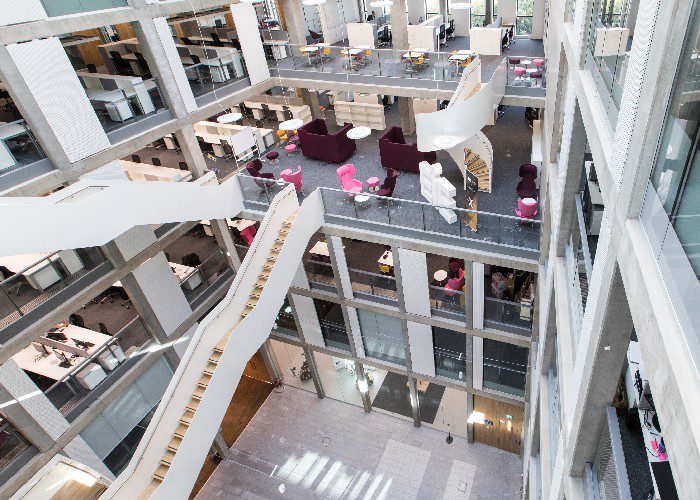A BODY-sizing app to improve online shopping, 3D printed tumours to test cancer drugs, and a mental health early warning monitor are among the 12 innovations selected for the next University of Edinburgh AI Accelerator.
Twelve teams of artificial intelligence entrepreneurs will begin the six-month AI Accelerator – part of a wider Data Driven Entrepreneurship programme at the University – on 22 September. Its purpose is to help AI-driven startups with high growth potential to set foundations to become world-leading companies, creating jobs and economic and societal benefit.
The Accelerator’s cohort has been selected from 66 applicants worldwide. It follows previous successful AI Accelerators, the last of which which ran from February to July 2021, during which the 15 companies taking part raised an impressive £6.3 million in investment and grants to develop their businesses.
Among the new participants, Oxford-based Aistetic has developed a machine learning system that turns a phone camera into a body-sizing scanner to help online retailers sell clothes in the right sizes, reducing returns and improving customer satisfaction.
Edinburgh-based Carcinotech is reinventing cancer research by manufacturing 3D-printed tumours using cancer stem cells, primary cells and established cell lines, providing a new platform for pre-clinical and precision medicine testing.
EMoodie is addressing the mental health epidemic by providing an early warning system to improve outcomes and quality of life for individuals and reduce the burden for health care providers. The Edinburgh-based company is already working with the World Health Organisation and NHS24.
And an Italian company, Indigo.ai, has created an AI platform for companies to easily create bespoke, high quality conversational assistants to improve staff efficiency and customer satisfaction.
The AI Accelerator is delivered by the University’s Bayes Centre and Edinburgh Innovations, the University’s commercialisation service, in partnership with Scale Space, the workspace dedicated to scale-ups, and supported by Edinburgh-based strategic design consultancy Nile.
Charlotte Waugh, Enterprise and Innovation Programme Lead at Edinburgh Innovations, said: “I am delighted to welcome this new AI Accelerator cohort to the Bayes Centre and Edinburgh.
“Given the challenges our society faces in bouncing back from the impact of Covid-19, it has never been more important to support the best innovative companies to scale.
“Society needs more solutions based on AI and data-focused technologies and Industry needs to speed up digitisation and decarbonisation. The university’s expertise in data, technology and business development means we are perfectly positioned to help these businesses address key challenges and make an immediate difference.”
Mark Sanders, Executive Chairman of Scale Space, will serve as Entrepreneur-in-Residence to help company founders address challenges they encounter in building their businesses, and introduce them to mentors, academics and investors who can help accelerate their companies’ development.
Sanders said: “Excited to be working with this second cohort of the AI Accelerator programme and the opportunity to help these amazingly talented innovators to further develop their businesses and to refine their propositions so that they can go for growth.
“Last time we saw significant progress across the group and this time we’re hoping to have an even bigger impact.”
Nile draws on its experience of working with startups at its own Nile Co-Foundry and its service design and behavioural research expertise to support the Accelerator’s early-stage founders.
Nile Founder Sarah Ronald said: “Scotland’s size is its strength. We are small enough to create a thriving and connected ecosystem with wide reaching benefits to be gained across academia, entrepreneurship and investment.
“Programmes like this are an essential part of the overall ecosystem we build. Nile is here to help ensure each company, and each entrepreneur, has the best possible chance to scale and benefit both the Scottish and wider economies.”
Each participating company will receive a £9,000 stipend from the Scottish Funding Council via the Data-Driven Innovation Programme of the Edinburgh and South-East Scotland City Region Deal.
